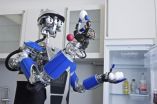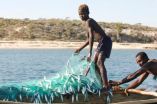NJ Association of Verismo Opera Announces Supernumeraries, Volunteers Wanted. Special Discount Tickets Available in March.
2012-02-27
Have you dreamed about being a part of a live production and seeing the show unfold before your eyes while sharing the limelight with outstanding talent? The New Jersey Association of Verismo Opera (Verismo Opera) has several opportunities for adult men and women and teens to perform important non-singing, non-speaking acting roles as supernumeraries (supers), similar to extra roles in a movie, or as volunteers working behind the scenes.
Supernumeraries Wanted
North Jersey's only professional, grand opera company continues its season, A Year of Love Tragedy, and ...
Smappsoft releases "Pokertini: Video Poker With A Twist" for iPad, iPhone and iPod Touch
2012-02-27
Smappsoft today announced the release of Pokertini: Video Poker With A Twist for the iPad, iPhone and iPod Touch. This new title, recently featured at MacWorld/iWorld, brings the classic casino favorite to a whole new level with a detailed and exciting strategic overlay.
In Pokertini: Video Poker With A Twist, players simultaneously play three independent video poker hands, and arrange their simulated bets to maximize payoffs on favored hands. In addition, they use strategic twists to manipulate their cards to improve their hands and odds of winning. Along the way, ...
FreightCenter.com Continues Corporate Expansion in 2012
2012-02-27
FreightCenter.com continues expansion of its corporate offices after closing out yet another year marked by climbing revenues and software development. The freight technology company is looking to add 20 new positions by the end of the first quarter.
A sharp rise in the number of managed accounts has yielded the expansion of several divisions during the first quarter of 2012. This growth influences the immediate need for new hires, internal restructuring and eventually additional office space.
"We are on track for another successful year and are proactively ...
Novel bioactive peptides promote wound healing in vivo
2012-02-27
BOSTON (February 23, 2012, 5:00 pm ET) — Researchers have combined bioactive peptides to successfully stimulate wound healing. The in vitro and in vivo study, published today in PLoS ONE, demonstrates that the combination of two peptides stimulates the growth of blood vessels and promotes re-growth of tissue. Further development of these peptides could lead to a new treatment for chronic and acute wounds.
The team tested a newly-created peptide, UN3, in pre-clinical models aimed to simulate impaired wound healing as is seen in patients with peripheral vascular diseases ...
New theory shows that neither birth nor death stops a flock
2012-02-27
EUGENE, Ore. -- (Feb. 24, 2011) -- Neither births nor deaths stop the flocking of organisms. They just keep moving, says theoretical physicist John J. Toner of the University of Oregon. The notion, he says, has implications in biology and eventually could point to new cancer therapies.
Picture any scenario in which self-propelled organisms -- animals, birds, bacteria, molecules within cells, cancer cells, fish, and even tiny plastic rods on a vibrating table -- move as a swarm or flock in the same direction. Eighteen years ago, Toner co-developed two equations that together ...
Could rosemary scent boost brain performance?
2012-02-27
Hailed since ancient times for its medicinal properties, we still have a lot to learn about the effects of rosemary. Now researchers writing in Therapeutic Advances in Psychopharmacology, published by SAGE, have shown for the first time that blood levels of a rosemary oil component correlate with improved cognitive performance.
Rosemary (Rosmarinus officinalis) is one of many traditional medicinal plants that yield essential oils. But exactly how such plants affect human behaviour is still unclear. Mark Moss and Lorraine Oliver, working at the Brain, Performance and Nutrition ...
Combined inhibition of VEGF and c-MET can decrease metastasis
2012-02-27
Inhibition of VEGF increased c-MET expression in tumors.
Invasion and metastasis were blocked by inhibition of VEGF plus c-MET.
Dual VEGF/c-MET inhibitors are in late-stage clinical trials.
PHILADELPHIA — Dual inhibition of vascular endothelial growth factor and c-MET signaling inhibited tumor invasion and metastasis in a laboratory model of pancreatic neuroendocrine cancer, according to a paper published in Cancer Discovery, the newest journal of the American Association for Cancer Research.
"Inhibition of VEGF signaling plus c-MET signaling results in a synergistic ...
Cancer therapy more potent when it hits 2 targets
2012-02-27
Simultaneous targeting of two different molecules in cancer is an effective way to shrink tumors, block invasion, and stop metastasis, scientists at the University of California, San Francisco (UCSF) have found—work that may improve the effectiveness of combination treatments that include drugs like Avastin.
The two-target approach, tested in mice with a type of cancer known as neuroendocrine pancreatic tumors, may have broad application for treating a wide variety of cancers, the UCSF team said. The drugs used in the tests belong to classes of pharmaceuticals that are ...
Grateful Dead Tribute Band Brother Esau Announces New Partnership With EastCoast Entertainment Agency
2012-02-27
Brother Esau a Grateful Dead Tribute Band, officially announced it's partnership with EastCoast Entertainment to represent them for their night club, corporate event, private party and concert bookings.
Brother Esau is a Grateful Dead Tribute Band that celebrates the Grateful Dead's music and recaptures the mystique of the iconic band. The band has become a fixture in the Raleigh, Chapel Hill and the Greensboro, NC's Jam Band scene, often collaborating with some of the areas finest musicians. Venues played include The Cat's Cradle in Chapel Hill, NC, The Blind Tiger ...
NESTA Offers More Local Fitness Workshops for Personal Fitness Trainers in 2012
2012-02-27
Already recognized for its global online personal training programs and certification, the National Exercise & Sports Trainers Association (NESTA) recently expanded its local, personal training workshops from coast to coast. As a supplement to its online programs, the personal training workshops, provided by Training Made Fun, are now available in Arizona, California, Florida, Hawaii, Kansas, Nevada, New Jersey, New York, Oregon, Utah and Washington.
The two-day personal training workshops offer the NESTA Personal Fitness Training certification, which is accredited ...
California Autobody Association Proudly Announces the Election of Dave Picton as Association President for 2012
2012-02-27
The California Autobody Association (CAA) announced today the election of Dave Picton, owner of G&R Body and Paint, located in Sacramento, as the association president for the 2012 fiscal year. As president, Mr. Picton has overall responsibility for leading the CAA, and has a busy agenda set for the year.
"We are extremely excited to have Dave as the president of our association," said Dave McClune, the executive director of the CAA. "His industry experience, dedication to the growth and success of our membership, and commitment to furthering our legislative ...
HollywoodSportsbook.com Welcomes National Cheerleader Week
2012-02-27
Hollywoodsportsbook (www.hollywoodsportsbook.com) a leading online entertainment gaming site since 1997, today announced that it is celebrating National Cheerleader Week by offering its clients personalized private photos of their in house cheerleading team, known as The Hollywood Hotties.
Robert Evans, Hollywood's Director of Operations says, "we know what boys like, we know what boys want...Cheerleaders!..so we are giving them personalized pictures of our in house cheerleading squad, the infamous Hollywood Hotties. We also offer a fun video on our site for our ...
Wrigleyville Sports Announces Further Expansion of Wrigleyville Store, in Time for Upcoming Cubs Season
2012-02-27
Wrigleyville Sports, an official retailer of Chicago Cubs merchandise, is excited to announce it will be expanding its store (959 W Addison) located across the street from historic Wrigley Field, in Chicago. The retailer underwent an expansion in the Spring of 2010, nearly doubling their browsing area. With the recent acquisition of the former location of Sitclose Tickets, the store will continue its growth eastward, towards the Addison Red Line stop.
"The store has always tried to carry everything, and more, for the Chicago Cub fan, but with the resurgence in other ...
New knowledge on the pharmacology of dopamine stabilizers
2012-02-27
A study from Karolinska Institutet in Sweden shows that a new drug for Huntington's disease – pridopidine or dopamine stabiliser ACR16 – might operate via previously unknown mechanisms of action. Researchers have found that at very low concentrations, ACR16 binds to the sigma-1 receptor, a protein in the brain important to neuronal function and survival. This new knowledge can be used to develop future treatments for schizophrenia, involuntary Parkinsonian tremors and neurodegenerative diseases.
"It's conceivable that some of the beneficial effects of dopamine stabilisers ...
YOR Health Expands Internationally: A New Era Dawns in Nutrition and Healthy Living
2012-02-27
Access Technology Solutions (ATS) is announcing a global partnership with YOR Health, a provider of products that enrich its customers' health and wellness. ATS' international "sell and ship" solution will help the premium nutrition and healthy living brand spread its message of health and 360 degree fitness to markets where demand for wellness products is growing quickly.
In January, ATS launched YOR Health's international operations into both Switzerland and Canada in just two weeks. Switzerland is the leading market for YOR Health outside of North America, ...
Cebit 2012: The wireless bicycle brake, a prototype on an exciting mission
2012-02-27
At this time, wireless networks are able to brake just one bike, but in the future, the technical elements will be further developed to regulate entire trains as they travel over the lines. In view of that fact, computer scientists at Saarland University are designing mathematical calculations to check such systems automatically. The scientists will present their results at stand F34 in hall 26 at the computer fair Cebit. The trade show takes place in Hanover, Germany from March 6 to 10.
Professor Holger Hermanns, who holds the chair of Dependable Systems and Software, ...
Will 2012 Prove to be Yet Another Record Breaking Year for Popular Thai Tourist Resort, Krabi?
2012-02-27
The beautiful province of Krabi in south west Thailand enjoyed a remarkable year in 2011, with a record number of tourists visiting the area, despite a devastating flood which severely impacted the Thai tourist trade. Amazingly in 2012, Krabi villas, hotels and resorts are already reporting an improvement on last years impressive performance, even factoring in a traditionally busy period covering Chinese New Year.
Since the very beginning of the year, we have been experiencing our highest occupancy rates ever, Ton Loriers, managing director at Krabi Villas by Ton Company ...
Novel method to make nanomaterials discovered
2012-02-27
Researchers at the NanoScience Center of the University of Jyväskylä, Finland, and at Harvard University, US, have discovered a novel way to make nanomaterials. Using computer simulations, the researchers have been able to predict that long and narrow graphene nanoribbons can be rolled into carbon nanotubes by means of twisting. The research has received funding from the Academy of Finland.
The basic idea is simple and easily explained: just twist the ends of a strap on your backpack and watch what happens. Being classical in origin, the mechanism is robust and valid ...
CeBIT: Robot obeys commands and gestures
2012-02-27
At the CeBIT in Hanover, Karlsruhe Institute of Technology and the FZI Research Center for Information Technology will present innovations for our everyday life in the future. At the joint stand G33 in hall 26, a humanoid kitchen robot will move around, three-dimensional visualizations will open up new perspectives, and new algorithms will be presented to protect data in the cloud. The FZI House of Living Labs will present the interactive HoLLiE service robot and solutions for intelligent energy management.
ARMAR Robot Learns by Watching
A robot helping in the household ...
A study describes liquid water diffusion at molecular level
2012-02-27
An article published in Physical Review and conducted by researchers at the universities of Granada and Barcelona might lead to a revolutionary change in water desalination and filtration methods.
Researchers at the universities of Granada and Barcelona have described for the first time the diffusion of liquid water through nanochannels in molecular terms; nanochannels are extremely tiny channels with a diameter of 1-100 nanometers that scientists use to study the behavior of molecules (nm. a unit of length in the metric system equal to one billionth of a meter that is ...
92 percent of families with adopted children are satisfied with their decision
2012-02-27
Two separate surveys six years apart have been used to analyse the level of satisfaction with adoptions in Andalucía. The study shows that 77.7% of families are happier after the process and variables that make it more difficult have been identified, such as the age of the children when arriving, multiple adoption and previous experiences of abuse. There is a significant link between the parents' assessment and that of the children.
"We wanted to know to what extent adoptions in Spain are providing children who need it with a healthy family environment that promotes their ...
A new radiotherapy technique significantly reduces irradiation of healthy tissue
2012-02-27
Researchers at the University of Granada and the university hospital Virgen de las Nieves in Granada have developed a new radiotherapy technique that is much less toxic than that traditionally used and only targets cancerous tissue.
This new protocol provides a less invasive but equally efficient cancer postoperative treatment for cases of cancer of the oral cavity and pharynx.
The study -conducted between 2005 and 2008- included 80 patients diagnosed with epidermoid cancer of the oral cavity and pharynx, who had undergone lymph node removal. The affected nodes were ...
Top Performing Internet Marketers to Hold Exclusive Legacy Event
2012-02-27
Well-known internet marketers, Aaron and Sophia Rashkin along with members of the Loyal 9 Revolution have scheduled the "Legacy" on March 24 and 25, at the offices of the Loyal 9 in New Jersey.
The Legacy is an extremely focused event and follows the AFL Freedom Mastermind 2 that took place in late January at the Rashkin home office in beautiful Parker, Colorado. That 2 and 1/2 day live training experience brought together 12 inspired entrepreneurs from around the world to teach them the mindset and the successful internet marketing strategies used by these ...
Study IDs new marine protected areas in Madagascar
2012-02-27
NEW YORK (February 24, 2012) – A new study by the University of California, Berkeley, Wildlife Conservation Society, and others uses a new scientific methodology for establishing marine protected areas in Madagascar that offers a "diversified portfolio" of management options – from strict no-take zones to areas that would allow fishing.
The methodology looks at existing information on the country's climate, along with dependence on fisheries and marine resources, and applies three different planning approaches to establish priorities for management along the entirety of ...
Protecting the climate by reducing fluorinated greenhouse gas emissions
2012-02-27
Hydrofluorocarbons (HFCs), which have been used in recent years in increasing quantities as substitutes for CFCs, are also climatically very active and many are also extremely long-lived. In the renowned journal Science an international team of researchers recommends that the most potent of these gases also be regulated. This could save the positive «side effect» of the Montreal Protocol for the global climate.
It is regarded as the most successful international environmental agreement and has, to date, been ratified by 196 countries – the Montreal Protocol on Substances ...
[1] ... [6686]
[6687]
[6688]
[6689]
[6690]
[6691]
[6692]
[6693]
6694
[6695]
[6696]
[6697]
[6698]
[6699]
[6700]
[6701]
[6702]
... [8785]
Press-News.org - Free Press Release Distribution service.








